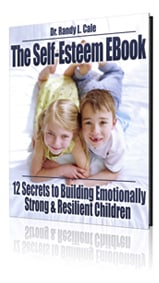Okay, let’s face it. Most children get too much stuff these days when Santa arrives. Too strong, you think? Perhaps, but we can know one thing for sure:
The more stuff they get…, the less they seem to appreciate it.
Just notice for yourself. Most of us didn’t have a 1/10th of the number of toys, gadgets, and goodies that our children had. We certainly didn’t have 1/10th of the number of entertainment options.
And yet, if there were any data to argue that kids having more and more stuff made them happier and happier, I would be the first to jump up and down and point to it. But it doesn’t exist for kids, and it doesn’t exist for adults. The more we accumulate stuff, toys, and entertainment, the less we tend to value it.
So, nothing is wrong with more and better. It’s just important that we accumulate the ‘more and better’ in a manner that promotes an ongoing appreciation of our good fortune. So, as the holiday season approaches, consider how to nurture values you care about, particularly the beautiful value of appreciation. Here are a few simple ideas to help you keep your feet on the ground and teach values that will serve happiness and satisfaction.
It’s Your Job: Set limits on their expectations.
As the holiday season rolls around, setting limits on your children’s expectations is helpful. More and more, I see parents trying to fulfill a list with 15 items of what their kids want for Christmas. Out of fear of disappointment or a desire to please, they search to find every item, leveraging their credit cards well beyond their comfort zone.
Stop this madness by controlling your kid’s expectations. If you don’t manage this, social media, TV ads, and peers will ensure the list grows to absurd lengths. And then, only disappointment awaits after you break the budget on gifts.
Santa knows what’s best for you.
For younger kids, as Christmas approaches and you’ve made your choices, you can now begin to manage their expectations. I tell kids, “It’s Santa’s job to know what’s best for you.” Explain that Santa will probably pick three toys that he feels you need, and that will be it. Perhaps commenting, “Best to let Santa know what’s tops on your list, Sweetheart.”
For older kids who refuse to work down their list to the essentials, let them know that Mom and Dad will make some choices, even if they do not narrow the list. And if they can’t be selective, you’ll choose what is best for them. If your daughter is caught on designer boots that cost $400 bucks, I would be cautious about feeding this presumption-even if you have the means. Why? The same teenager likely has a list of another dozen items, and the sense of entitlement to more and more is an easy attitudinal ‘weed’ to feed. It’s best not to feed that weed! Once that monster is out of the bag, life can be unpleasant for you and your pocketbook.
And, of course, you and I know she will be miserable without them. But only superficially happy for a few moments when she opens them. Imagine, they didn’t have the color she wanted. Suddenly, your $400 bucks bring pain and no joy… despite your best efforts. It is best to get ahead of this early with precise limit setting. Again, it is best to set limits so expectations are easily met on the big day.
Give them more. They appreciate it less. It’s the law.
You don’t have to trust me on this one. Just open your eyes and notice what you see. The more our lives become focused on the “stuff” of our lives, the more that the “stuff” fills our desires. Kids get addicted to immediate stimulation and limitless entertainment, thinking the ‘next best thing’ will bring them happiness.
How does this work in our brain? We don’t know, but it appears to be something like this. We get a new toy or gadget or game. We are entertained and engaged by it. Our brains release lots of dopamine, anticipating and enjoying the newness of it and the unfolding of learning and growing.
Then, our beautiful brains begin to accommodate, and dopamine plunges. This is normal. But, if not careful, we now want the next new thing as a substitute for finding ways to enjoy more deeply and thoroughly what we currently have.
Thus, we look for and demand what’s next new thing. It’s a dangerous game to feed this tendency with more and more access to more ‘stuff.’
Again, there is no additional happiness. No additional appreciation.
Create Memories That Stick.
Most of us don’t remember all the specific gifts from Holiday Magic as we grew up. Yet, I suspect that there are some rituals that you share with a parent or grandparent that feed a warm spot in your heart. These are the true treasures. Focus on getting your children involved in shared activities, whether cooking, wrapping, prepping the tree, helping out at church, or spending time helping a grandparent. The more they must give of themselves in some way and do so with action rather than words, the better. The depth of impact from giving and participating greatly influences our character and memories, ensuring many positive and meaningful residuals.
And finally, perhaps the most meaningful memory of all will unfold from the experience of joy and happiness we exude as we move through this holiday season. So we do our best to keep our hearts open, filled with joy, and as corny as it sounds, ‘Strive to be more PRESENT and less concerned with presents.’















